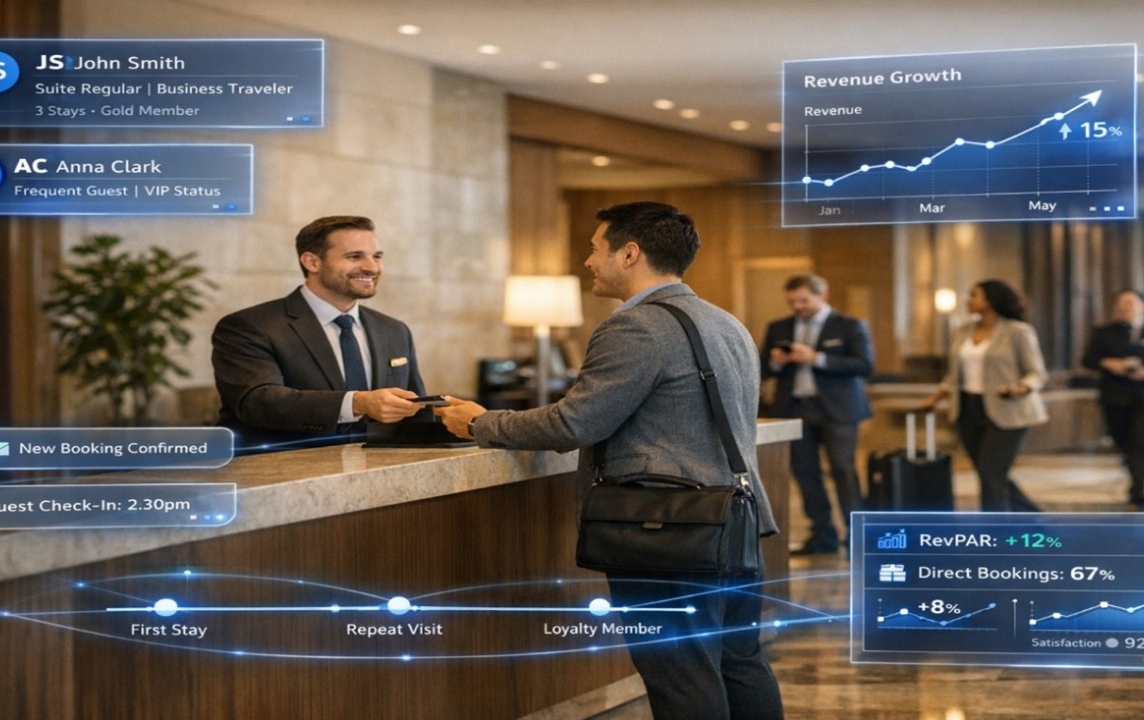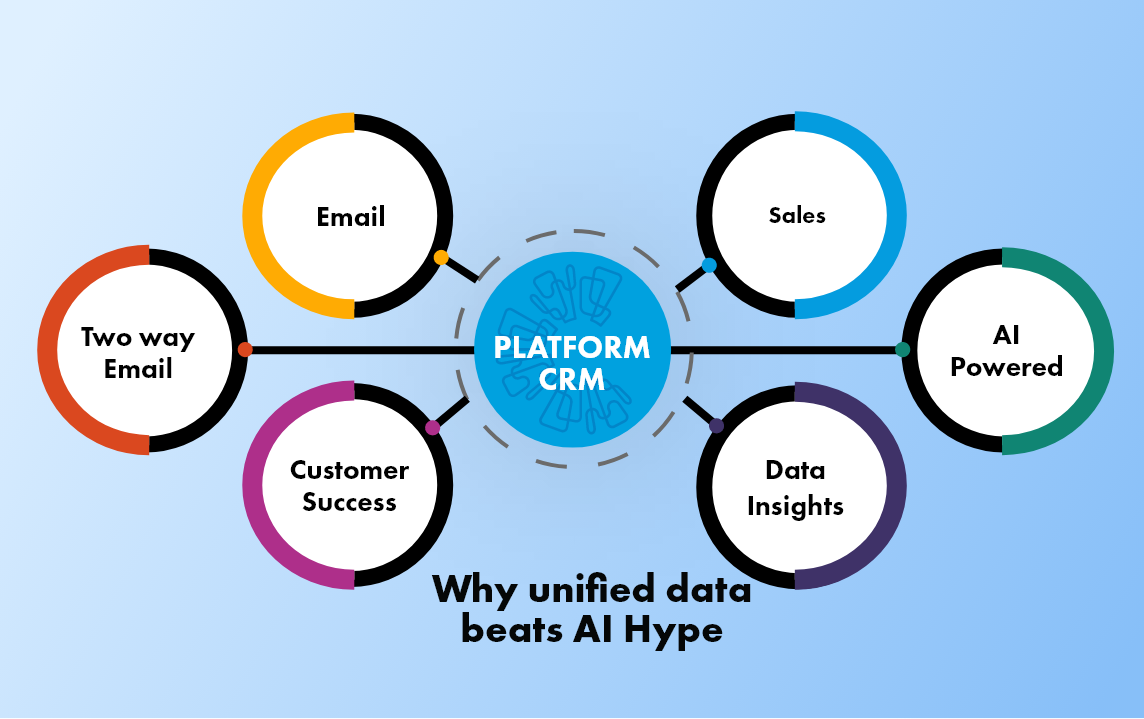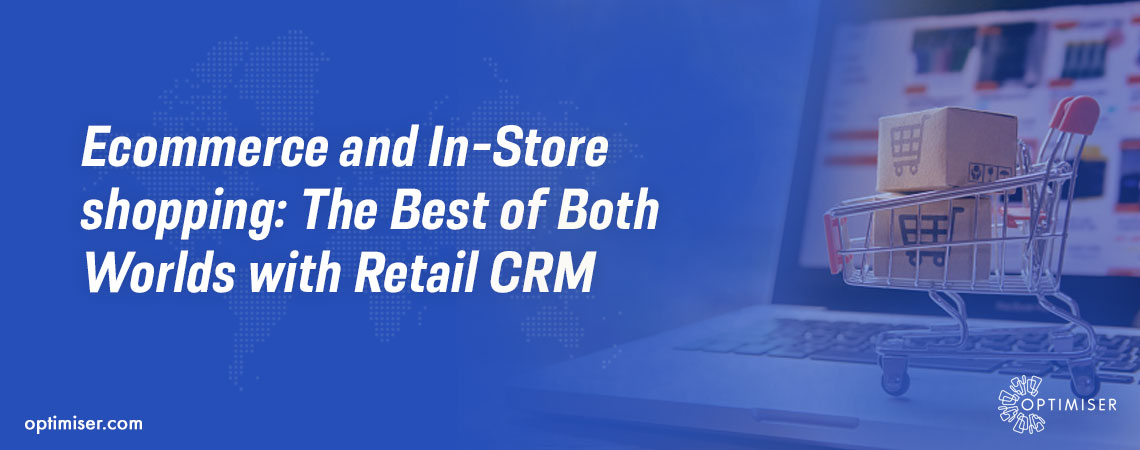
Retail CRM
Ecommerce and In-Store shopping: The Best of Both Worlds with Retail CRM
E-commerce has been the game-changer for how business is conducted. Previous evidence suggested that customers favour online shopping over retail shopping, but that is not true. On further inspection, it was observed that while e-commerce will become a trend, purchases will still be made in-store. No more than 12.8 percent of the retail market includes e-commerce by 2019. CRM for shops have gained sales as the retail industry went on to grow.
Customers have used e-commerce more for research purposes rather than buying it online. They still prefer to touch the product, examine it personally, and decide after trying it out. Using e-commerce, they compare the prices and pick from the best possible option.
After the pandemic factor, people resigned to buying products online for their safety. But as the situation improves, they have begun to go back to retail purchasing.
While the year 2020 has not proven to be profitable for retailers, it has ensured that they offer their customers both online and offline options to stay in business and improve it in case any unprecedented change occurs.
In-Store Shopping
- What makes In-Store shopping more appealing to customers?
The personal experience of interacting with the product is what makes it personal for them. Customers enjoy personal service very much. It does not necessarily mean a store assistant guiding them; most like to be left to their devices.For example, while buying clothes, the customers can try them out without relying on images online. It allows them to feel more confident in their purchase.
- Even if the product presents any issues, the in-store policies allow customers to change the product or entitle them to a refund. Whereas for online shopping, return policies tend to be restrictive as well as complicated. Retail shoppers can get their money back easily as the policies mentioned are quite straightforward without them having to worry about email tag or return shipping. One simply needs to travel to the store and return the product without waiting for the process to consume time.
- Additionally, the one place wherein retail shopping is better than e-commerce is customer service. Retail stores have better and more developed customer service. In contrast, online sellers can be quite negligent and non-responsive at times. Many online sellers do not know how to utilise it with Retail CRM software due to incomplete training.
E-Commerce has Choices
- While an average retailer has limited stock, online shopping offers its customer many options to pick from. The retail might not have the long winter coat in red colour that you are looking for. Still, online platforms will offer you several options, and all of them have different styles and sizes. One of the biggest e-commerce platforms offers more than 353 million products on its websites. Retail stores tend to pale in comparison when it comes to this aspect.
It has been established that no matter which shops we visit, our options will be limited compared to online shopping. Besides, online stores are cheaper as compared to retail shops. When there is no need to pay for rent, utilities, fixtures, payroll and such, e-commerce businesses give out cheaper rates to the customers, making them more appealing. For any client out to shop, this can be extremely tempting. CRM for e-commerce websites allows sellers to gain consumer data and address their queries instantly.
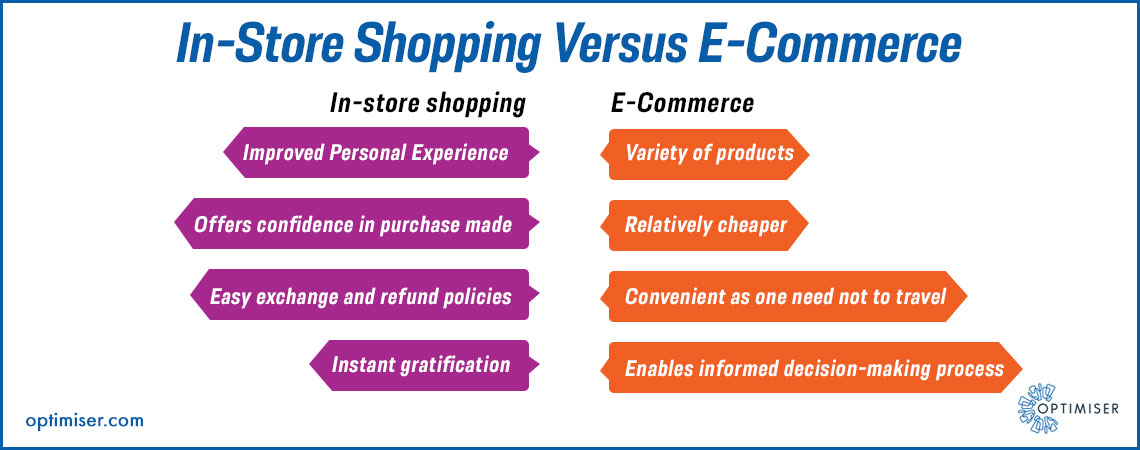
What role does Retail CRM play?
Retailers can adopt a CRM to ensure that their customers get the possible experience of both in-store purchasing and e-commerce. Using gathered information and analytics, Optimiser CRM can let customers and employees take advantage of both e-commerce and retail. The best retail CRM software, Optimiser, comes with a Shop Suite equipped with powerful automation and AI-enabled insights that will allow one to combine both.
- In-store information kiosks can be used to get data on the product without surfacing online, comparing prices, and even checking the customer reviews. This information can be used to develop a detailed customer profile. This further can be added to the customers' purchase history to provide them with better offers and recommendations. It gives a personal touch to the emails and leaves a long-lasting impression.
- The personalised shopping experience is not the only thing that a Retail CRM is used for. It stretches beyond optimisation of the sales cycle. The customer profile created can ensure that support staff, marketers, and other employees will have access to the customer data and provide the best possible customer service to ensure customer retention and even ask for recommendations for the business.
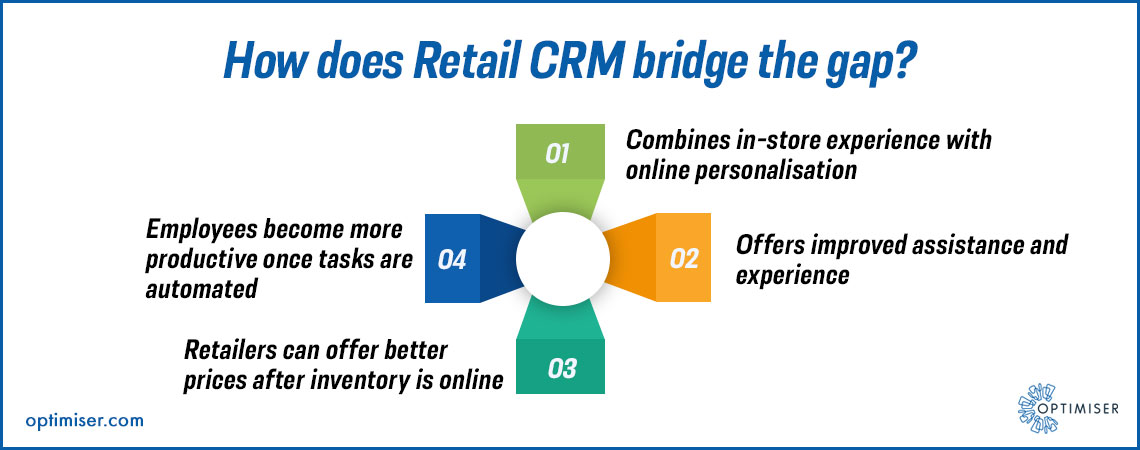
- Customers enjoy personalisation, and anything that cuts down the time spent from aisle to aisle is appreciated. Using the insights, employees can guide the customers to the aisle they might be interested in based on their purchase history and sell better.
- But the top feature is the ability to give better prices once the inventory has been moved online. Using a digital platform to maintain the inventory, the stores can cut down the prices and even offer more discounts.
Summary
Altogether, a retail CRM provides an efficient solution that makes the employees far more productive and customer data management seamless. Without having to lose the in-store experience, customers can efficiently shop at their convenience and save time.

30 days free trial. No credit card required
 One powerful platform
One powerful platform
 Simple to use
Simple to use
 Comprehensive
Comprehensive

